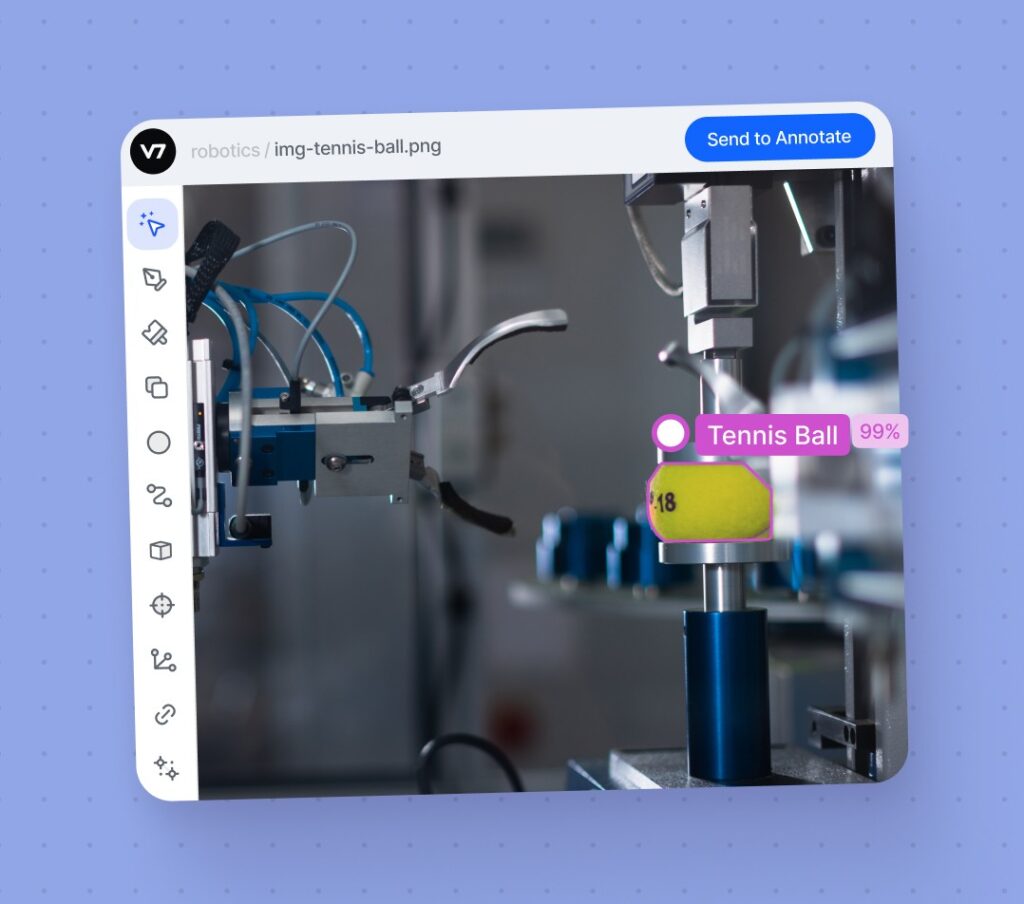
Robotics and artificial intelligence have independently reshaped our world, but their fusion has proven truly revolutionary. The marriage of these technologies has unleashed a wave of innovation, automating tasks, boosting productivity, and creating entirely new possibilities across numerous sectors. This convergence hasn’t just been incremental; it represents a paradigm shift, pushing the boundaries of what’s achievable in manufacturing, healthcare, agriculture, and beyond.
The explosive growth of the AI robotics market underscores this transformation. Valued at US$6.9 billion in 2021, it’s projected to reach a staggering US$35.5 billion by 2026, boasting a compound annual growth rate (CAGR) of 38.6%. This phenomenal growth isn’t just a technological trend; it’s a reflection of the increasing demand for automation and efficiency across industries grappling with labor shortages and the need for enhanced precision.
The COVID-19 pandemic accelerated this adoption. Lockdowns and remote work mandates created a pressing need for solutions enabling remote operation and control of complex machinery. Intelligent robots, programmable and manageable from anywhere, emerged as a crucial answer, proving their versatility and resilience in the face of unforeseen challenges.
The Ubiquitous Presence of AI Robots:
Today, AI robots are far from a futuristic fantasy. They are actively transforming operations in a vast array of sectors, from tech giants to small businesses. They greet customers in shops, serve meals in restaurants, harvest crops in vast fields, and lift heavy loads in factories. Their presence is not simply replacing human workers; it’s augmenting human capabilities and creating safer, more efficient work environments. In industrial settings, AI-enabled robots operate safely alongside human workers, performing intricate tasks such as cutting, grinding, welding, and inspection autonomously. Research even indicates that a moderate increase in robot density (1.34 robots per 1000 workers) leads to a significant reduction in workplace injuries (approximately 1.2 injuries per worker).
AI Robots: Industry-Specific Applications:
Let’s delve into specific industry applications showcasing the breadth and depth of AI robotics’ impact:
1. Agriculture: Revolutionizing Farming Practices:
The agricultural sector is undergoing a dramatic transformation thanks to AI-powered robots. Farmers are leveraging these technologies to boost efficiency, optimize yields, and reduce manual labor. AI assists in understanding weather patterns, advising on fertilizer and water usage, and predicting optimal harvest times. The core applications include:
- Robot Picking: Harvesting fruits and vegetables is a labor-intensive process. AI-powered robots, utilizing machine learning and computer vision, identify ripe produce and delicately pick it, minimizing damage. Examples include Shadow Robot’s Dexterous Hand and Tevel’s AI-powered drones, already deployed across farms in Israel, the USA, and Italy, significantly reducing labor hours and increasing efficiency.
- Crop Harvesting/Weeding: AI algorithms determine crop ripeness, enabling precise harvesting. The Agrobot E-Series and the Cambridge University-developed Vegebot showcase this capability, autonomously picking berries and harvesting lettuce, respectively. Weed control, traditionally a time-consuming task, is automated by robots like Carbon Robotics’ LaserWeeder, which uses computer vision and thermal energy to eliminate weeds with remarkable accuracy, resulting in up to 80% cost savings.
2. Manufacturing: Enhancing Precision and Safety:
Robots have been a staple in manufacturing for decades, but AI is elevating their capabilities. Intelligent robots now perform real-time assessments and adapt to dynamic situations.
- Damage Control and Quick Maintenance: Robots equipped with computer vision inspect machinery and infrastructure for damage, significantly reducing inspection time. Companies like Abyss Solutions utilize this technology for infrastructure inspections, cutting down inspection times from months to weeks. The use of robust annotation tools like V7 further enhances the accuracy of these inspection systems.
- Quality Inspection: AI robots meticulously inspect assembly lines for defects, surpassing human capabilities in accuracy and consistency. Companies such as Naska.AI provide AI solutions for construction site inspections, ensuring structural integrity and progress tracking. Novacura’s Flow solution uses specialized cameras and AI to monitor assembly lines, identifying defects and automatically triggering corrective actions.
- Automatic Control: Integrated control solutions provide a single point of access for process monitoring. GE’s Brilliant Manufacturing Suite exemplifies this, integrating design, manufacturing, and supply chain procedures across its global network, creating an intelligent and scalable system.
- Nuclear Waste Management: The hazardous task of nuclear waste cleanup is made safer and more efficient with AI-powered robots. The Manufacturing Technology Centre’s project, leveraging V7’s platform for training robots to identify and handle radioactive materials, showcases the potential of AI in managing hazardous environments.
3. Healthcare: Enhancing Patient Care and Surgical Precision:
AI robotics is transforming healthcare, from administrative tasks to complex surgical procedures.
- Disinfection and Sterilization: Robots like Tru-D autonomously disinfect hospital rooms using UV light, reducing the risk of infections and improving hygiene.
- Patient Assistance: Robots such as Diligent Robotics’ Moxi assist clinical staff with non-patient-facing tasks, freeing up human resources for direct patient care. Futronics’ AI ecosystem monitors patient vitals, manages medication, and even assists with rehabilitation.
- Surgical Robotics: Surgical robots like Stryker’s Mako assist surgeons in hip and knee replacements, using 3D imaging and robotic arms to improve precision and patient outcomes.
4. Transportation: The Self-Driving Revolution:
Self-driving vehicles represent a landmark application of AI robotics. Companies like Cruise leverage AI and robotics, incorporating 360 cameras and sophisticated software, creating autonomous vehicles already operating in several US cities. Perceptive Automata is pushing the boundaries further, focusing on predicting pedestrian behavior to improve safety and navigation in crowded environments.
5. Aerospace and Space Exploration:
AI robots are playing a crucial role in space exploration. NASA’s Perseverance rover uses AI to navigate the Martian surface, mapping terrain and identifying points of scientific interest. Airbus’ CIMON-2 serves as a robotic assistant for astronauts, performing basic tasks and providing support in space.
Challenges and the Future of AI Robotics:
While the benefits of AI robotics are undeniable, concerns remain, particularly regarding job displacement. However, the focus should be on leveraging this technology to augment human capabilities, creating new roles and opportunities rather than solely replacing existing ones. The future of AI robotics lies in continued innovation, focusing on safety, ethical considerations, and seamless integration into existing workflows. As AI algorithms become more sophisticated and robots more adaptable, the potential applications of this technology will only continue to expand, transforming industries and reshaping the future in ways we can only begin to imagine.









